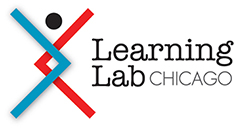The experts agree—children with Autism or Reading Disorders (Dyslexia) who are identified and provided with intervention early in their development show the biggest improvements. This is not a secret-the sooner you identify what is going on, the quicker you are able to provide the most appropriate level of intervention. This strategy is not only true for Autism and Reading Disorders, it is true for all children with learning differences. In the Autism population, researchers have shown that children who receive intervention before age 3 years show more improvements than children who were provided with intervention after the age of 5 years. This finding is also consistent with providing early intervention services to children in other populations (motor delays, language delays, etc.).
The experts in Reading Disorders or Dyslexia also agree. Children who struggle to read in first grade continue to struggle in second, third and beyond unless they are provided with intensive intervention early on. And the consequences of “getting off to a bad start” can be exacerbated over time. The consequences range from negative attitudes toward reading, reduced vocabulary knowledge, poor or inconsistent reading comprehension strategies, reading less and a general dislike in school.
The best solution to the problem is Early Identification and Early Intervention. In other words, let’s find out what the exact problem is so we can then develop the most appropriate plan for targeted intervention.
However, very few public and even private schools have the resources to correctly identify children before failure occurs.
My point is this—It is never too early to have your child evaluated.
The reality is this—Parents need to seek out a private neuropsychological evaluation.
A comprehensive neuropsychological evaluation will determine your child’s cognitive strengths and weaknesses, identify any learning issues in reading, written language or mathematics, pinpoint how your child learns, determine if any processing issues exist, understand your child’s social functioning, including whether or not their profile is consistent with an Autism spectrum diagnosis, evaluate your child’s attention and executive functioning abilities and provide insight into their emotional and behavioral functioning.
Following completion of the evaluation, you will have a ‘road map’ for the future, which includes recommendations for the interventions, strategies, and accommodations for their specific school and for home. The evaluation will give you the direction needed in order for your child to achieve success in all areas of functioning and across all settings!
It is not over yet. A neuropsychologist is also your child’s best advocate. Following completion of the feedback session to parents on the results, we will meet with your child’s school and determine what level of support and interventions are necessary to address your child’s unique learning profile.
Lori G. Tall, PsyD
Clinical Director, Rush NeuroBehavioral Center
Assistant Professor, Department of Behavioral Sciences
Rush University Medical Center
Resources:
Franis, Shaywitz, Stuebing, Shaywitz & Fletche, 1996
Torgesen & Burgess, 1998
Brown, Palinscarz & Purcell, 1986
Nagy, Herman & Anderson, 1985


